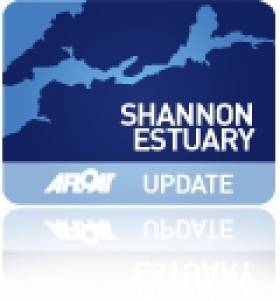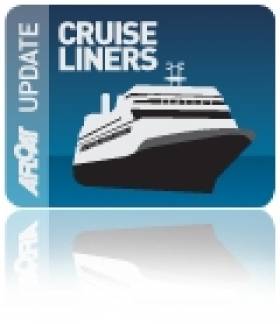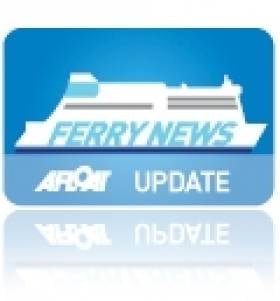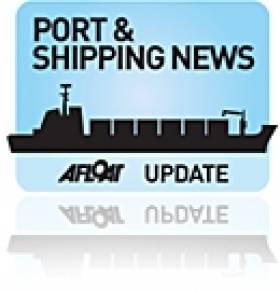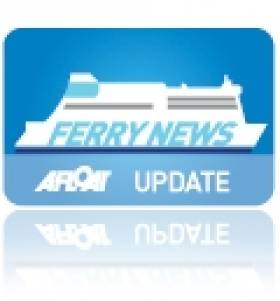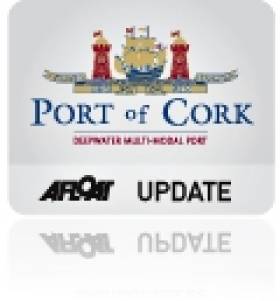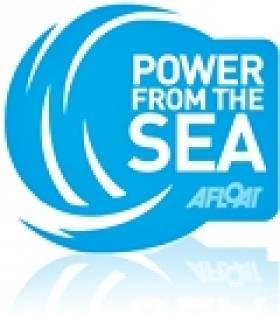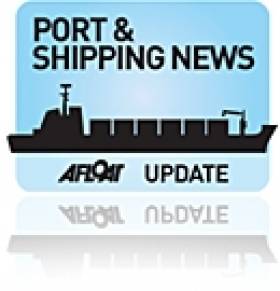Displaying items by tag: Ports and Shipping
Ardmore Shipping Supports Cadetship Programme
#IRISH CADETSHIPS – Ardmore Shipping Ltd which operates a fleet of tankers on a global basis is taking part in the Irish Cadet Training Programme run by the National Maritime College of Ireland (NMCI), writes Jehan Ashmore.
The Irish registered company only set-up its international fiscal operations in 2010 at the group's head-office based in Cork. The company has provided a number of berths on its vessels for cadets in order to give them the hands-on experience that is such a vital part of their training.
One of the cadets studying at NMCI is Ian Fitzpatrick from Dublin who said: "I am very grateful for the opportunity given to me to work with a company like Ardmore Shipping on an Irish owned vessel".
Ireland has a long tradition of seafaring and with new companies like Ardmore Shipping they will give the opportunities to Irish cadets to learn and progress in their careers says the NMCI.
Ardmore is expanding its fleet with an order for four 50,000 dwt product and chemical tankers from the SPP Shipbuilding Co., Ltd, South Korea. The newbuilds are due to be completed next year and to be registered in the Marshall Islands.
Foynes Hosts Emergency Ship Fire Drills
#SHANNON ESTUARY – The Maritime Journal reports that a simulated fire and rescue drill simulating a fire on board a ship took place in Foynes Port this week.
Limerick County Fire & Rescue Service with the assistance of Shannon Foynes Port Company and Celtic Tugs which operates a fleet of tugs in the port hosted the Ship and Ports Course.
A number of exercises were carried out during the course, to read more on the exercise click HERE.
Seatruck to Launch New Freight Route
#NEW FREIGHT ROUTE – A new route between Belfast-Heysham is to be launched by Irsh Sea freight-only specialist Seatruck Ferries early next month, according to The Irish Trucker.
The new service will be opened on 7 May using the sisters Arrow and Ranger which will be switched from their current duties out of Larne.
Later in the year Seatruck will deploy larger vessels on the new Belfast route and move the service from Heysham to Liverpool, operating from the Seatruck terminal on the City side of the Mersey.
In Belfast, Seatruck will operate from Albert Quay terminal - directly opposite the Titanic Quarter. For much more on this story click HERE.
Cruiseships Head for Isle of Man
#MANX CRUISE CALLS – The Manx capital is set to welcome over a dozen cruise callers for the season which starts next month according to www.visitisleman.com
Two of the 14 calls that are scheduled to Douglas belong to the Silversea Cruises fleet, the Silver Cloud due in June, has been a fairly frequent visitor to the Isle of Man in the past. While the company's recently acquired 'Expedition' vessel Silver Explorer will be visiting the Island for the first time earlier in May.
Other distinctive inaugural callers in 2012 include the Seven Seas Voyager. The Berlitz Guide rated luxury premium class vessel is also scheduled to visit Douglas again the following year.
In addition to the 2012 season, the Thomson Spirit is due to call in early September, a vessel with a 1,250 passenger capability.
Below is the 2012 cruise call list
Quest for Adventure, 8th May
Arion, 26th May
Discovery, 28th May
Silver Explorer, 31st May
Marco Polo, 4th June
Ocean Countess, 5th June
Seven Seas Voyager, 7th June
Silver Cloud, 8th June
Saga Sapphire, 4th July
Quest for Adventure, 9th July
Marco Polo, 16th July
Deutschland, 20th July
Hebridean Princess, 21st August
Thomson Spirit, 6th September
Brittany Ferries 'Flagship' Sets Sail for Summer Season
#FERRY TO FRANCE – Brittany Ferries flagship Cork-Roscoff route is underway, as the first sailing in 2012 of the seasonal-only operated service started last weekend and runs to early November. Serving on the 14 hour route which is the shortest sailing to France, is the luxurious flagship Pont-Aven, writes Jehan Ashmore.
The 2,400 passenger /650 vehicle capacity Pont-Aven is unique to Irish services as she features a swimming pool. The indoor facility located on the top deck, includes a leisure area and pool bar which is open during the summer season and on busy off-season crossings.
In addition there are restaurants, a piano bar, main lounge, café and shop facilities. She has a wide choice of cabin accommodation that includes 'Commodore' cabins complete with balconies. For details about sailing schedules click HERE.
Roscoff is set in picturesque surroundings on the north-west Breton coast and the ferryport is a short distance even by foot to the town which has restaurants facing the coast. There is a botanical garden and a century-old thalassotherapy that has seawater and seaweed treatments used for healing and relaxation therapies.
First Quarter Boost for Drogheda Port
#PORTS & SHIPPING – After the first three months of 2012 Drogheda Port Company reported figures well above average in the port sector with throughput growth posting an impressive 59% increase on the corresponding period of last year.
Over 228,000 tonnes of cargo was handled by the Co. Louth port and for the first time the balance of trade in the port equalised with 50% of the volume represented by imports and 50% of the volume represented by exports.
The volume growth at the port is very much export led with a number of indigenous industries focusing on the European and UK markets as outlets for their products.
As previously reported on Afloat.ie a new tonnage record was set in January when the Arklow Bridge (2011/4,723grt) carrying 7,175 tonnes of maize representing the largest ever single cargo handled in the port.
Mr Paul Fleming, Drogheda Port Chief Executive said "Drogheda Port continues to provide a strategic import/export location for our customers with a service more flexible and cost competitive than other larger ports. This is helping us to win new contracts and grow our business".
He added: "The ports performance demonstrates the economy is rebalancing towards exports at a time when our economic recovery is very much dependent on being driven by our exporting firms."
The outlook for the Irish port sector for 2012 looks likely to be testing for the domestic port and shipping sectors and according to the port they project to continue above average volume increases for the year.
In May the port can look forward to hosting its first cruise call by the Clipper Adventurer (1975/4,367grt) as previously reported. The vessel will be undertaking its inaugural circumnavigation of the island of Ireland visiting a number of destinations including Drogheda and the Boyne Valley.
Summer Debut for Final Seatruck Newbuild
#FERRY NEWS – The final of the quartet of new ro-ro freight vessels, Seatruck Precision was launched last week from the FSG Flensburg Yard, Germany, according to the Irish Trucker.
The compact and energy-efficient vessel, which has a capacity of up to 151 trailers was named by Mrs Lynn McBurney, wife of Seatruck customer Norman McBurney, founder of McBurney Transport - one of Ireland's largest independent haulage companies.
Seatruck Precision in June will join her three sisters on Seatruck's unaccompanied freight routes across the Irish Sea. The first newbuilding, Seatruck Progress (click HERE) operates on the Dublin-Liverpool – route. The second newbuild, Seatruck Power, joined the central corridor route in February while the third newcomer, Seatruck Performance which was launched in January, is to start operating in the Irish Sea next month.
The 'Banana' Trade Returns to Cork
#PORT OF CORK – Global shipping giant Maersk Line recently started their first ever direct service to Ireland with a new liner service calling to the Port of Cork and sees the return of the 'banana' trade not last seen in port since the 1970's, writes Jehan Ashmore.
The older 'banana' boats or reefers that used to serve Cork may be long gone but the Danish owned Maersk Line will be operating an impressive pool of eight large contiainerships. They will bring leading banana brands from Central American ports to Europe with Cork being the first port of call in Europe. The liner service starts in the Mexican port of Vera Cruz and includes calls to Costa Rica, Belize, Panama before reaching Cork.
One of the vessels Maersk Nolanville (2004/26,833grt) last week docked in Ringaskiddy Deepwater Terminal, is one of the largest of her type to be accommodated in the port. At 700m long, a beam over 30m and drawing a draft exceeding 10m the South Korean built vessel was too large to berth at the ports Tivoli Container Terminal further upriver on the Lee.
Maersk Nolanville and her fleet-mates will operate with a weekly call to Cork on Thursdays, where quayside cranes in Ringaskiddy will handle the 2,500 (TEU) capacity vessels including around 800 refrigerated containers containing perishable tropical fruits.
Asides bananas the vessels will import other cargoes, with the containerships also calling to Tilbury in the UK and Rotterdam and with exports on the return leg of the long trans-Atlantic voyage home.
IMERC’s Inaugural Conference 2012
#IMERC CONFERENCE - The recently established Irish Maritime and Energy Resource Cluster (IMERC) which is to promote the country as a world-renowned research and development location, is to host next month its inaugural conference entitled 'Maritime Geostrategic Thinking for Ireland'.
Minster for Marine, Simon Coveney T.D. will address the conference at the National Maritime College of Ireland (NMCI), Ringaskiddy, Co, Cork which is to be held on Friday 9th March.
In addition to keynotes speakers addressing the conference are Glenn Murphy (IMDO), Commodore Mellett of the Naval Service, Anthony Gurnee from Ardmore Shipping, Helen Noble, Head of Maritime Law at Matheson Ormsby and Prentice and Professor D John Mangan from the University of Newcastle.
Below is a programme schedule of the conference and additional information and link.
Session 1: Fighting recession by supporting an export led economy
Session 2: Building maritime security capability in support of economic development
Session 3: Future of Maritime Ireland
Session 4: IMERC Industry Engagement
To make a booking and receive further details on the conference contact IMERC Tel: (021) 433 5717 or by clicking HERE.
IMERC is based on the campus grounds of NMCI which is located between the Naval Service Base on Haulbowline Island and the neighbouring ferryport in Ringaskiddy.
Under phrase 1 of IMERC's campus development plans, it aims for the construction of the UCC National Beaufort Centre by May 2013. Phase 2 of the campus is for an extended maritime and energy science and commercial park located on the adjacent Port of Cork owned landbank.
Ship Starring in BBC ‘The Box’ Departs Dublin Port
#PORTS & SHIPPING- Vega Stockholm, a vessel which featured in the BBC The 'Box' that tracked the movements of a single container around the world in 2008, coinciding with the start of the credit crunch crisis and telling the story of globalisation and the world economy, departed Dublin Port this evening, writes Jehan Ashmore.
The Box travelled the world ( totalling 50,000 miles) first departed from the BBC TV Centre headquarters, London and headed northwards by road to Scotland. From there the Box was loaded on board the Vega Stockholm in Greenock and she departed on 12th September (see PHOTO) and made an en route call to Belfast before arriving the next day in Dublin Port. Only 16 days later the fateful decision by the Irish Government to bail-out the Irish banks was made with a state guarantee.
The domestic economic crisis was also set against some of the most dramatic developments in the global economy including the first global recession in 60 years, notably with the fall of global finances giant Lehman Brothers.
The container box or forty equivalent units or (FEU) in industry parlance was painted in distinctive red and emblazoned with the words BBC News and the website www.bbc.co.uk/thebox so it could be tracked online across continents and oceans in addition to coverage by T.V. and radio. To trace the route taken by Box over 421 days to and from the UK, click HERE. In addition for further photographs taken by viewers following the Box departing the Clyde on board the container vessel click HERE.
On the first leg of a worldwide journey, Vega Stockholm (2006/8,306grt) departed the Scottish port with the Box laden with 15,000 bottles of Scotch whiskey bound for Shanghai, though this particular 'feeder' vessel would of carried the box to another port prior to onward shipment to the Far East by a much larger containership.
The Box carried other cargoes on different legs as part of its worldwide journey to include 4000 shoes and over 95,000 tins of cat food for our fluffy friends. Of the entire journey, over 47,000 miles was spent crossing the oceans.
The box itself suffered some battering along the way including that of an economic front as the container sat still for three months in the docks of the Japanese port of Yukohoma.
At the time a record 10% of the fleet were idle, and revenues per container were likely to have dropped from already extremely depressed levels. The journey of the Box made for an interesting time to be following a container around the world.
To put some figures into context during the exercise the global container business made a collective profit of £3bn in 2008, but is estimated to have lost a cool £20bn in 2009.
After the Box arrived back to Southampton with vehicle parts, the container finally returned to London. Perhaps the most ironic tale of the exercise was the actual fate of the 'Box' itself, as it was reported the container ended up in South Africa to be converted for use as soup kitchen, another story for the Beeb!
- Ports and Shipping
- Dublin Port
- BBC The Box
- Vega Stockholm
- Containerships
- Global economy
- Lehman Brothers
- Irish bank bailout
- Irish state bank guarantee
- BBC headquarters
- Port of Greenock
- Container feeder services
- Port of Shanghai
- Scotch Whiskey
- Yukohoma
- Credit crunch crisis
- Southampton Docks
- BBC News
- Clyde
- Port of Belfast




























